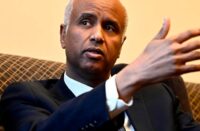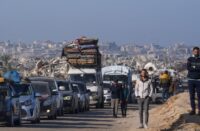The Vancouver administration has declared a temporary halt on the approval of new supportive housing developments within the city. This decision comes as part of a larger initiative to revamp the Downtown Eastside (DTES) area.
DTES is a symbol of the city’s resilience but it has also been a battleground for various challenges, said Sim at the Save Our Streets Forum. Despite the significant funds that have been invested into the region, the expected transformation has been slow. A new direction is needed, one that values recovery, inclusivity, and public safety while integrating DTES into the wider Vancouver community.
Sim sees this as a critical juncture in the city’s strategy to handle addiction, crime, and housing issues in the DTES. He suggested three policy changes, the first of which is a revision to the Downtown Eastside Area Plan. The goal is to promote a diverse blend of housing, businesses, and services in the area. This strategy is expected to disrupt the existing cycle of high-density services in DTES, which includes supportive housing and social services.
The integration of the DTES neighbourhood into the broader Vancouver community is key, said Sim. This will create a more balanced, supportive environment for residents, businesses, and tourists.
Additionally, the city is planning to execute a city-wide offensive against organized crime and gangs in DTES. Sim stated that the city will collaborate with the Vancouver Police Department to confront street-level violence and dismantle criminal networks that prey on vulnerable residents, jeopardizing community safety.
By temporarily stopping the construction of new supportive housing units, the city can concentrate on rejuvenating the existing aging housing stock, said Sim. At present, Vancouver provides 77% of the region’s supportive housing, yet it only represents 25% of the region’s population.
Sim emphasized the need to prioritize accountability, dignity, and recovery. He concluded by saying, “We owe it to neighbourhood residents, Vancouverites, and all British Columbians to do better, and we will.”
In essence, the city’s plan is aimed at creating a more balanced and inclusive community, addressing crime, and revitalizing the existing housing infrastructure.





